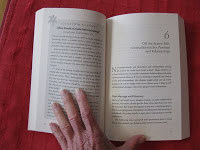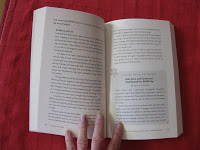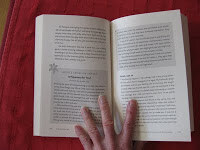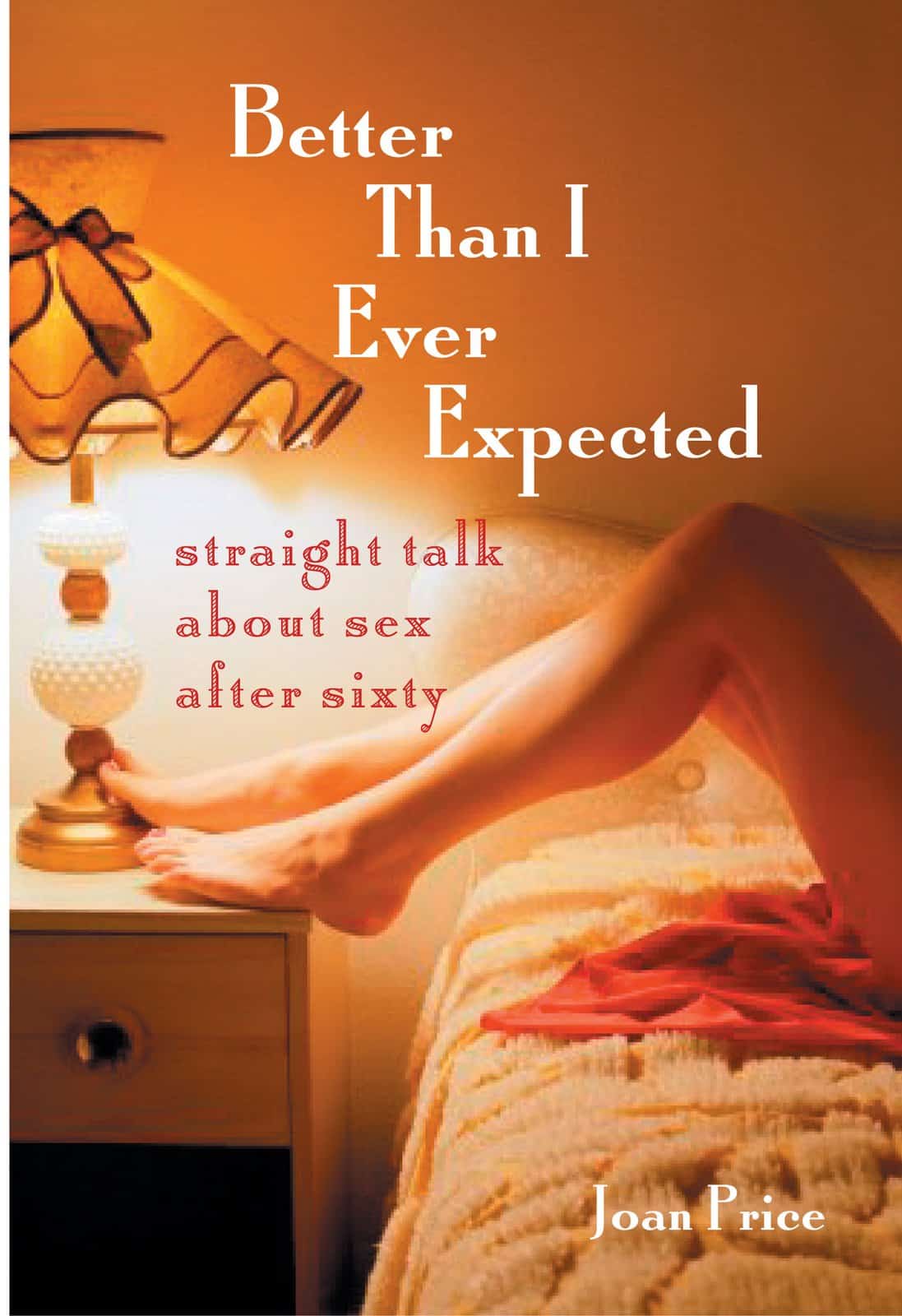Posts Tagged ‘friends with benefits’
“Friends with benefits” — do we need a new term?
 Question to readers: I know that many people in our age group have “friends with benefits” (FWB), or would like to. Do we need a new term for it?
Question to readers: I know that many people in our age group have “friends with benefits” (FWB), or would like to. Do we need a new term for it?
I’m talking about a relationship that is sexual but also a solid friendship — we like each other in and out of bed — yet it’s not a committed relationship and will not become one.
We’re not partners and we’re not dating exactly — we just get together when we both want to, and sex is usually part of the package. We stay in touch in between times together. We’re both free to pursue and explore other relationships. We don’t have goals of our FWB becoming more (or different) than the way we’re enjoying each other right now. It is what it is, and we like that.
It’s not the same as a “hookup” or “bootie call” because we share an emotional closeness — yet without any expectations or restrictions about what we do when we’re not together.
What do you think? Is “friends with benefits” a good enough term? Or does that sound too casual or non-caring? One person suggested “limited relationship” as opposed to “committed” or “primary” relationship, but that seems to emphasize what it isn’t rather than what it is. I suggested “lover-friends.” I hope you’ll add your point of view.
I hope you’ll post a comment using a first name of your choice (choose something other than “anonymous”), plus your age, please, so we can see how our generation thinks.
Feel free to add your FWB experience after age 50, if you care to share. I think this kind of relationship is far more common than we know!

Thank you in advance for commenting!
Friends with Benefits — at our age?
I get occasional emails from women asking whether a “friends with benefits” — aka “sex buddy” — relationship is possible at our age. The women who write me usually worry that they’ll become too emotionally involved. I say that if you’re worried about this, heed that fear, because it’s likely a warning sign that this will happen.
Casual sex without entanglement can work, but only if we really believe it can, and we’re clear ourselves as well as with our partners about the boundaries. Are we friends first, lovers second? Are we playing at romance, or refusing to let the relationship become romantic? Are the reasons that we want to be friends with benefits but not actual “in-love” lovers clear and valid to both of us? Honesty is required in this kind of relationship.
One woman asked me whether becoming sexual with a former “in-love” lover would work. I don’t think so. If the relationship was once a full-on love affair, and it ended for good reasons, going backwards seems to me just confusing. The emotions that this love affair triggered once can’t help but surface again, it seems to me, and someone will get hurt.
I hope I don’t need to say that if there’s another person involved — your friend/lover has a primary partner — that it has to be okay with the partner. Don’t sneak or lie — if it can’t happen honestly, it shouldn’t happen. I don’t moralize much because I believe that anything two consenting adults do is no one’s business but theirs. But if another partner is involved, that partner has to give consent, too.
In my thirties, forties, even fifties, I had friends with benefits at various times — men who remain friends to this day, though it’s been decades since we were sexually involved. Could it work today? I think so, given the right man, the right friendship, the right communication, the right circumstances. Please comment if you’re involved in a friends with benefits relationship at our age, and tell us your tips for making it work.
| Tina Tessina |
My friend and writing colleague Tina B. Tessina, PhD, “Dr. Romance,” is a licensed psychotherapist and author of “The Dr. Romance Blog” as well as 13 books. Her newest book is Lovestyles: How to Celebrate Your Differences. Tina contributes these tips and food for thought before embarking on a friends with benefits relationship:
If you’re thinking about having sex with a friend, be very careful, because it is not easy to preserve a friendship once you have sex. We think we can control our feelings, but it’s not so simple.*If one of you becomes romantically attached as a result of the sex, the friendship will probably not survive.*If you’ve done it before, and you know you can keep your feelings in check, you might be successful, but what about your friend? Are you sure he or she is aware of his or her own feelings and motives?*Think about it in advance and talk about it a lot*Are you going to keep dating others while you’re doing this FWB thing?*What if one of you falls in love with someone else?* What if you just want out of the deal after a while?*What if only one of you falls in love, instead of remaining friends?Keep talking throughout the FWB arrangement It sounds a lot more fun and easier than it really is.The benefit is being able to have sex with someone you know, rather than a stranger. The disadvantages are: It could be the end of the friendship.
One person (usually the woman) could fall in love, while the other (usually the man) doesn’t want to pursue more of a relationship. It may keep you from finding a real relationship, because you’re too comfortable to look.If you start to develop feelings, pay attention! Don’t ignore it. Let your partner know, and watch the reaction. If you don’t get a positive response, cut off the sex. That’s the way to see if the other person is also emotionally attached or not. Don’t languish in a friends-with-benefits relationship when you want more. If he suddenly meets someone else and marries her, you’ll be devastated.If you want to cut off the sex, you need to explain why you’re doing it. “I’m developing deeper feelings for you, and since you don’t seem to return them, I have to stop having sex with you. I’d like to still be friends.” Or, “I can’t even be your friend for a while, because I’m grieving.”Maintaining this type of relationship is not easy for anyone. It only seems easy at the beginning. My office is full of people who had their hearts broken this way. Older people tend to be a little wiser and more cautious about it than younger people, but all ages get hurt.Don’t just let things develop on their own. Definitely talk about it beforehand, or as soon as possible. You need to establish that the friendship is important to both of you, and you don’t want to ruin it. You also need to talk about feelings, to open that subject for future discussion.* If you want to turn a friendship into a full-on relationship, and you’re serious about it, then you need to talk about that, too. Your friendship will be altered forever when you have sex for the first time. You have things to lose here, and things to gain.*Make some agreements, discuss the above questions, and keep talking about it.Back to being friends
Friendships that go from friends to lovers back to friends can be very close, because you know each other so well. The first thing you need to do is talk about it. Make a deal that you won’t do anything that would jeopardize your friendship, and stick to it. (That means, acting as a friend, and not acting jealous if he/she has a date.)The more emotionally mature you are, the easier it is to re-establish the friendship. Openness increases intimacy. So friends who can talk about everything feel closer than friends who can’t.
Breaking Rules at Our Age
 What sexual “rules” have you broken since turning 50, 60, or beyond?
What sexual “rules” have you broken since turning 50, 60, or beyond?
I ask this because I discovered from the interviews and reader stories that you’ll read in Naked at Our Age: Talking Out Loud about Senior Sex, many of us make some pretty drastic changes in our lives after age 50. Maybe we get divorced, discover love, open up our marriage, take a new lover, experiment with kink or multiple partners or virtual sex — or some combination of these or other alternatives.
The point is that although society sees us as settled into mid-life or old age, we’re far from “settled.” I think there’s something about emerging from menopause that makes us question where we want to be in our lives. Menopause often feels like an upheaval — I’ve described it before as “PMS on steroids” — where everything seems upside down. We don’t want to be responsible for remembering the whole family’s appointments, for example, and we might not be overly kind when we tell family members to take care of themselves.
After the upheaval settles, we see our lives differently. We realize that it’s now or never: it’s up to us to invent — or reinvent — what we want the rest of our lives to be, and what we have to do to actively go after our dreams.
 At the same time, in our sexual world, the old ways may not work any more. We may need different kinds of arousal or even a different type of relationship or a different partner. Major!
At the same time, in our sexual world, the old ways may not work any more. We may need different kinds of arousal or even a different type of relationship or a different partner. Major!
I got so many stories from my Naked at Our Age interviewees about alternative sex practices that this topic became a whole chapter: “Off the Beaten Path: Nontraditional Sex Practices and Relationships.” People wrote about swinging, polyamory, BDSM, friends with benefits, older women/younger men (20-30 years difference!), phone sex, and more.
 I predicted that younger readers would be shocked at what seniors are doing behind closed doors, and I should have guessed that it would shock our own age group, too. I’ve heard a couple of criticisms that this chapter and the one titled “Hiring Sensuality” (which I won’t tell you about — you have to read that one for yourself, and no, it’s not just men hiring sex!) make it sound like I’m endorsing or even pushing people towards alternative lifestyles.
I predicted that younger readers would be shocked at what seniors are doing behind closed doors, and I should have guessed that it would shock our own age group, too. I’ve heard a couple of criticisms that this chapter and the one titled “Hiring Sensuality” (which I won’t tell you about — you have to read that one for yourself, and no, it’s not just men hiring sex!) make it sound like I’m endorsing or even pushing people towards alternative lifestyles.
I’m not pushing anyone into anything. I’m showing senior sex — behaviors and attitudes — in all its colors and stripes. Personally, I support adults doing with other consenting adults whatever brings them pleasure, as long as it doesn’t hurt anyone — including the partners of those consenting adults. I have “vanilla” tastes myself, but that’s beside the point. The book is only partly about me. It’s really about you… and you… and you.
So back to my original question: What sexual “rules” have you broken since turning 50, 60, or beyond? By rules I mean society’s rules, the law, unspoken or spoken rules in a relationship, even your own rules. I’d love to see a dialogue start here. Please comment!
Learn more about Naked at Our Age: Talking Out Loud About Senior Sex here.
“Friends with benefits” — at our age?

Can we have a bedmate who isn’t a soulmate — or even a steady date — at our age?
Miriam, age 57, wrote me this email pondering whether or not it’s possible to have a “friend with benefits” — AKA “sex buddy” — at our age, getting the perks of sex with someone we feel comfortable with, but don’t consider a love relationship:
I read in Better Than I Ever Expected
where you and others have had neighbors/ friends/ buddies you have sex with when you’re between partners. I never considered this option before and would like to explore it.
I eventually want another lifelong love. I could only consider having sex with someone I like and love. I’d like to try the sex buddy approach, but I have a burning emotional question: Even if he’s currently a friend who is willing to be a sex buddy and there’s not a chance between us for a long romance, how do you keep your oxytocin bonding feelings from taking over and locking onto your sex buddy when you should be looking for a more robust, true love, like you had with Robert?
I’d love to know how to navigate this territory without getting derailed or distracted from my goal of finding a long term love. So who are good candidates? And what kind of parameters do you have with such a pillow pal? Monogamous with each other for the time being? Either one is free to have other partners? How do you end it?
I think you said in your book that you actually had a sex buddy when you first met Robert. How did you transition out of it? Any tips for how to make this successful?
I had several sex buddies/ friends with benefits during my long decades of single life. These were men who were friends first, and we genuinely liked each other. We recognized and discussed honestly that we were not each other’s true loves and we understood that our relationship would not develop in that direction.
Yet we were attracted to each other, and at the time we were not in other exclusive relationships. We did a lot of talking before we decided that we would enjoy being sex buddies.
We agreed from the beginning — and I think this is very important — that we would not be exclusive with each other, would not stop seeking an eventual partner, and if we started getting serious about someone else, we would terminate the sexual part of our friendship.
In my 30’s and 40’s, I had a dear sex buddy whom I enjoyed for many years, on and off (depending on whether one of us became involved in another relationship that needed to be monogamous). We were good friends in and out of bed.
But that was largely hormone-driven. Now other sexual needs drive us than our hormones. We want to be touched and held, we love our arousal and our orgasms, we love the high of sex with an enjoyable partner and the laughter and intimacy afterwards. You’re right that our bonding brain chemicals could play tricks on us and convince us were’ in love when the sex is good, even though our logic says no.
The person you mention who was my buddy for two years (I was 55-57) right before Robert and I became involved was in a committed relationship with someone with disparate sexual needs. My friend and I met with his mate and discussed what would be acceptable. We agreed to do only what didn’t feel threatening to my friend’s partner. This worked out very well. But I know this is rare. We were, all three of us, unusually verbal and honest, with good communications skills and a solid friendship.
Then, when Robert and I shared our first kiss, I immediately broke things off with my buddy, who understood and wished me well. We stayed close, Platonic friends — and we still are.
Of course I was honest with Robert, who was understandably uncomfortable about the whole business — he had never had such a relationship, and didn’t understand or like this. So be aware, if you enter into such a relationship, that you might encounter this, too.
Robert eventually got to know my buddy and like him, though he continued to furrow his brow and shake his head at what seemed to him to be very odd behavior!
Miriam also asked me this:
Who are the candidates? When I think of my single male friends, overwhelmingly, I consider them like brothers, and there’s no sexual vibe at all. The only other candidates would be former lovers, if we’ve been able to separate amicably and maintain a friendship. I’d be willing to try that, but then I’m concerned about that oxytocin bonding boost. Since I have already been in love with them once, I fear I’d get too bonded to them again, and stop putting out energy to be available for anyone else, even though I know there’s no romantic long term future with them. But the sensual touch sure would be nice!
I would not return to a former lover whom I had loved for this experiment. It just seems full of potential problems, because your earlier emotions could kick in easily.
Readers, help us here. Where did you find a friend with benefits who was emotionally safe? How did you approach a friend with an offer of FWB? I hope you’ll comment.
(Originally posted March 2010.)

